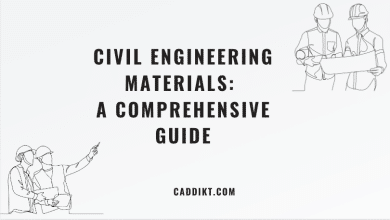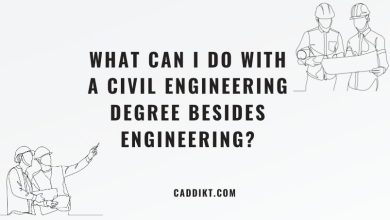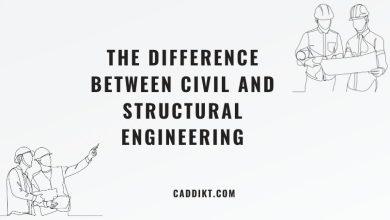Space Engineering – a field synonymous with innovation and exploration, pushing the boundaries of our knowledge and capabilities. Whether you’re an aspiring engineer, a curious student, or simply passionate about the mysteries of the universe, understanding how to start in Space Engineering can open doors to a universe of possibilities.
Key Takeaways
- Space Engineering is a multi-disciplinary field that requires a strong foundation in mathematics and physics, complemented by specialized knowledge in areas such as propulsion, spacecraft design, and orbital mechanics.
- A career in Space Engineering typically starts with a bachelor’s degree in aerospace engineering or a related field. Some engineers further their education with a master’s degree or Ph.D.
- Gaining practical experience through internships, cooperative programs, and entry-level positions is crucial for building skills and connecting with potential employers.
- Continuous learning and networking are vital due to the rapidly evolving nature of the field. Engaging in professional organizations, online communities, and continuing education are effective ways to stay updated and connected.
- The field offers diverse opportunities, ranging from working on satellite communication systems to planning human missions to Mars, with both public and private sector employers.
What is Space Engineering?
Space engineering is a multidisciplinary field that fuses engineering and science to create and apply technology to the exploration and understanding of space. This field plays a significant role in many aspects of our lives – from satellite communication to space missions and even weather forecasting.
Key disciplines of Space Engineering
- Aerospace Engineering: This deals with the design and development of aircraft and spacecraft. Aerospace engineering is further divided into two major overlapping branches: aeronautical engineering and astronautical engineering.
- Astrodynamics or Orbital Mechanics: This is concerned with the motion of rockets and other spacecraft, the design of spacecraft orbits, and related topics.
- Satellite Communications and Engineering: This is focused on the design and functioning of communications satellites, which provide telecommunication, weather, and GPS systems worldwide.
- Spacecraft Propulsion: This branch involves creating and improving the systems that propel spacecraft.
- Spacecraft Design: This involves the comprehensive process of designing a new spacecraft.
- Planetary Science and Astrometeorology: These are more specialized areas that deal with the study of planets, moons, and meteorological events in the solar system.
Steps to Start a Career in Space Engineering
Getting started in space engineering involves a structured approach, combining formal education, practical experience, and continuous learning. Here are the general steps to get started:
1. Earn a Bachelor’s Degree
A Bachelor’s degree in aerospace engineering or a related field is the most basic educational requirement for most space engineering jobs. This usually involves courses in physics, mathematics, aerodynamics, computer science, and materials science.
Some renowned universities for space engineering include:
- Massachusetts Institute of Technology (MIT)
- California Institute of Technology (Caltech)
- Stanford University
- University of Michigan
2. Get Hands-On Experience
Internships and co-op programs during your undergraduate studies can provide you with practical experience in the field. Many space companies and organizations like NASA, SpaceX, Blue Origin, and ESA offer internships to students.
3. Pursue a Master’s Degree or PhD (Optional)
A Master’s degree or PhD can offer opportunities to specialize in a specific area of space engineering. While not always necessary, advanced degrees can lead to more research-oriented roles, leadership positions, or teaching roles.
4. Gain Professional Experience
After completing your education, the next step is to gain professional experience. Entry-level space engineering jobs often involve working under the supervision of experienced engineers and may involve tasks like drawing up plans, assisting in spacecraft design, or testing prototypes.
5. Get Certified
While not a requirement, professional certification can demonstrate a certain level of competence and make an engineer more attractive to employers. Certifications are offered by professional bodies like the American Institute of Aeronautics and Astronautics (AIAA).
Essential Skills for a Space Engineer
Beyond academic qualifications, a space engineer must have a certain set of skills to succeed in their career. Here are some of the most important ones:
- Analytical Skills: Space engineers use these skills to assess designs and projects and troubleshoot any issues that arise.
- Mathematical Skills: Space engineering involves complex mathematical calculations, including calculus and trigonometry.
- Problem-Solving Skills: These are crucial when it comes to dealing with unexpected problems during the design, testing, and implementation phases.
- Communication Skills: Engineers must be able to communicate effectively with a team, present ideas, and sometimes write proposals for projects.
Career Prospects and Salary Expectations
According to the U.S. Bureau of Labor Statistics (BLS), the median annual wage for aerospace engineers was $116,500 as of May 2019. The field is expected to grow by 3% between 2019 and 2029, about as fast as the average for all occupations.
For further salary insights, you can refer to job sites like Glassdoor and Indeed, and for job opportunities, you can check platforms like LinkedIn and professional organizations such as AIAA.
Continuous Learning and Networking in Space Engineering
Continuous learning and networking are crucial in space engineering due to the rapid pace of technological advancements. Participating in professional organizations, attending conferences, and taking part in online communities can keep you updated and connected in the field.
Here are a few resources for continuous learning and networking:
- Professional Organizations: AIAA, IEEE, and International Astronautical Federation (IAF)
- Online Platforms: LinkedIn, ResearchGate
- Online Courses: Coursera, edX
Remember, starting a career in space engineering is a journey. It requires passion, persistence, and continuous learning. However, the rewards of being part of mankind’s exploration of space can be well worth the effort.
FAQ: How to start in Space Engineering?
1. What is the difference between Aeronautical and Astronautical Engineering?
Aeronautical Engineering primarily focuses on the design, development, testing, and production of aircraft that fly within the Earth’s atmosphere. This discipline encompasses areas like flight safety, fuel efficiency, operating costs, and environmental impact.
On the other hand, Astronautical Engineering is concerned with the design and development of spacecraft that operate outside the Earth’s atmosphere. This discipline deals with topics such as spacecraft propulsion, satellite communications, and designing spacecraft that can withstand the harsh conditions of space.
2. What does a day in the life of a Space Engineer look like?
A Space Engineer’s daily tasks can vary significantly depending on their specific role and the project they’re working on. A typical day might involve designing or testing components of a spacecraft, using computer simulations to predict how those components will perform in space, and meeting with team members to discuss project progress.
They might also spend time analyzing data from current spacecraft, troubleshooting issues, and brainstorming solutions. Despite the varied tasks, all Space Engineers need strong problem-solving skills, the ability to work in teams, and the willingness to continuously learn and adapt.
3. What are some of the major challenges faced by Space Engineers?
Space Engineers face a multitude of unique challenges due to the extreme conditions found in space. They need to design spacecraft that can withstand extreme temperatures, radiation, and the vacuum of space. Additionally, spacecraft must be incredibly reliable, as it’s typically impossible to repair them once they’re in orbit.
On a broader scale, Space Engineers also deal with issues such as sustainability, the ethics of space exploration, and the international laws governing space activities. These challenges require not just technical skills, but also a wide understanding of various other disciplines and factors.
4. What are some exciting developments in the field of Space Engineering?
The field of Space Engineering is always evolving and has seen several exciting developments in recent years. The rise of private space companies like SpaceX, Blue Origin, and Virgin Galactic has opened up a new era of commercial spaceflight. These companies are pioneering technologies such as reusable rockets, which could significantly reduce the cost of accessing space.
Moreover, ambitious projects like the Mars Rover missions, the search for exoplanets, and the development of the James Webb Space Telescope are pushing the boundaries of what we can achieve and learn about the universe. These developments are providing new opportunities and challenges for Space Engineers.
5. Are there opportunities for Space Engineers in the private sector?
Yes, there are many opportunities for Space Engineers in the private sector. Over the past decade, the space industry has seen significant growth, largely driven by private companies. These companies are involved in a wide range of activities, from launching satellites and providing space-based communication services, to developing spacecraft for human spaceflight.
Some of the most well-known private space companies include SpaceX, Blue Origin, Virgin Galactic, and Planet Labs. However, there are also many smaller companies and startups operating in this sector. These companies offer a wide range of roles for Space Engineers, from design and manufacturing to mission planning and operations.
6. How do Space Engineers collaborate with other professionals?
Space Engineers often work in multidisciplinary teams and collaborate with a wide range of other professionals. For instance, they might work with physicists to understand the scientific requirements of a space mission, or with software engineers to develop the onboard software for a spacecraft.
They also collaborate with other engineers to design and test the various components of a spacecraft, such as electrical engineers for the spacecraft’s power system, or mechanical engineers for its structural components. Additionally, they may also work with business professionals, such as project managers and business analysts, to ensure the project is on schedule and within budget.
7. What are some emerging fields in Space Engineering?
As technology advances and our ambitions in space continue to grow, new fields within Space Engineering are emerging. Some of these include:
- Astrobiology: This field combines biology, chemistry, and space science to understand the potential for life beyond Earth.
- Space Traffic Management: As the number of satellites and other space objects increases, there is a growing need for systems to track and manage these objects to prevent collisions.
- Space Tourism: Companies like Blue Origin and SpaceX are working on developing spacecraft for space tourism, opening up a whole new field of Space Engineering.
- In-Situ Resource Utilization (ISRU): This field focuses on using resources found on other planets or celestial bodies to support space missions, such as using lunar ice to produce rocket fuel.
8. What are the ethical considerations for Space Engineers?
Space Engineers, like all engineers, have a responsibility to consider the ethical implications of their work. This includes ensuring the safety of the public and of the people involved in space missions, and considering the environmental impact of space activities, both on Earth and in space.
In the context of space, there are also unique ethical issues to consider. For instance, as we explore other planets and moons, we need to avoid contaminating these bodies with Earth life, which could interfere with the search for extraterrestrial life. Similarly, as space tourism and commercial space activities increase, we need to consider how to ensure equitable access to space and avoid exacerbating social inequalities.
9. How can I prepare for a career in Space Engineering during high school?
If you’re still in high school and interested in Space Engineering, there are several steps you can take to prepare. Firstly, focus on developing a strong foundation in math and science, particularly physics and calculus. These subjects are fundamental to engineering and will be essential in your college courses.
Secondly, try to gain some hands-on experience. This could involve joining or starting a robotics club at your school, participating in science fairs, or doing an internship at a local engineering company or university. Finally, stay curious and keep learning. Read books, watch documentaries, and follow the latest news about space and space technology.
10. What kind of projects do Space Engineers work on?
Space Engineers work on a wide range of projects, from designing communication satellites and scientific instruments, to developing rockets and spacecraft for human spaceflight. They might also work on research projects, studying topics like the effects of microgravity on various materials, or developing new technologies for space exploration.
In addition to these technical projects, Space Engineers also work on project management, ensuring that space missions are delivered on time and within budget. They might also be involved in policy development, helping to shape the rules and regulations that govern space activities.
11. How do Space Engineers use computer simulations?
Computer simulations are a vital tool for Space Engineers. They allow engineers to test their designs in a virtual environment before building and launching them into space. For instance, they might simulate the launch of a rocket to predict its trajectory, or simulate the thermal environment a spacecraft will experience in space to ensure it can withstand the extreme temperatures.
These simulations can help identify potential problems and optimize designs, saving time and money. They also allow engineers to explore different design options and understand the trade-offs between different design choices.
12. What are the risks associated with space travel?
Space travel involves significant risks, both for the astronauts who travel into space and for the people on the ground. These risks include the possibility of a launch or landing failure, the effects of microgravity on the human body, exposure to space radiation, and the risk of collision with space debris.
Space Engineers work tirelessly to mitigate these risks and ensure the safety of space missions. They design spacecraft to be as reliable as possible, develop life support systems to protect astronauts in space, and use tracking systems to avoid collisions with space debris.
13. How can I specialize in a specific area of Space Engineering?
If you’re interested in specializing in a specific area of Space Engineering, there are several steps you can take. Firstly, during your bachelor’s degree, choose electives that align with your area of interest. You might also consider doing a senior project or thesis on a topic in that area.
After your bachelor’s degree, you could consider doing a master’s or PhD in your area of interest. This will allow you to gain in-depth knowledge and conduct research in that area. Finally, look for jobs or internships that align with your area of interest. This will give you practical experience and help you build expertise in that area.
14. What are some other career paths related to Space Engineering?
Space Engineering is a broad field, and there are many other career paths related to it. For instance, you could become a Space Physicist, studying the physical processes that occur in space. Or you could become a Space Policy Analyst, working on the laws and regulations that govern space activities.
Other related career paths include working as a Space Operations Manager, managing the day-to-day operations of space missions, or as a Space Educator, teaching the public or students about space. There are also opportunities in related fields like astronomy, geology, and computer science.
15. How has the field of Space Engineering changed over time?
The field of Space Engineering has evolved significantly since the start of the space age in the mid-20th century. Initially, space activities were largely driven by government agencies like NASA and the Soviet space program, with a focus on human spaceflight and scientific discovery.
Over time, the focus has expanded to include a wide range of activities, from communication and navigation satellites to planetary exploration. More recently, the rise of private space companies has opened up a new era of commercial space activities, including space tourism and asteroid mining. Throughout this evolution, Space Engineers have continued to push the boundaries of technology and overcome new challenges.
16. How do Space Engineers contribute to our understanding of the universe?
Space Engineers play a crucial role in our exploration and understanding of the universe. They design and build the spacecraft and instruments that allow us to study distant planets, stars, and galaxies. They also develop the technology that enables us to send astronauts into space, and potentially, in the future, to other planets.
Through their work, Space Engineers have contributed to many significant discoveries and achievements, from the first human-made object to reach space, to the first humans to walk on the moon, to the rovers currently exploring Mars. They are essential in our quest to understand our place in the universe.
Conclusion
As we stand at the frontier of a new era in space exploration, Space Engineers have the unique opportunity to shape our future in the cosmos. Starting a career in this field requires dedication, passion, and a lifelong commitment to learning and innovation. But for those willing to accept the challenge, a career in Space Engineering offers the chance to contribute to mankind’s exploration of the final frontier and unravel the mysteries of the universe.









